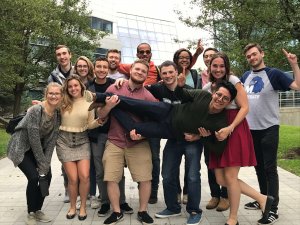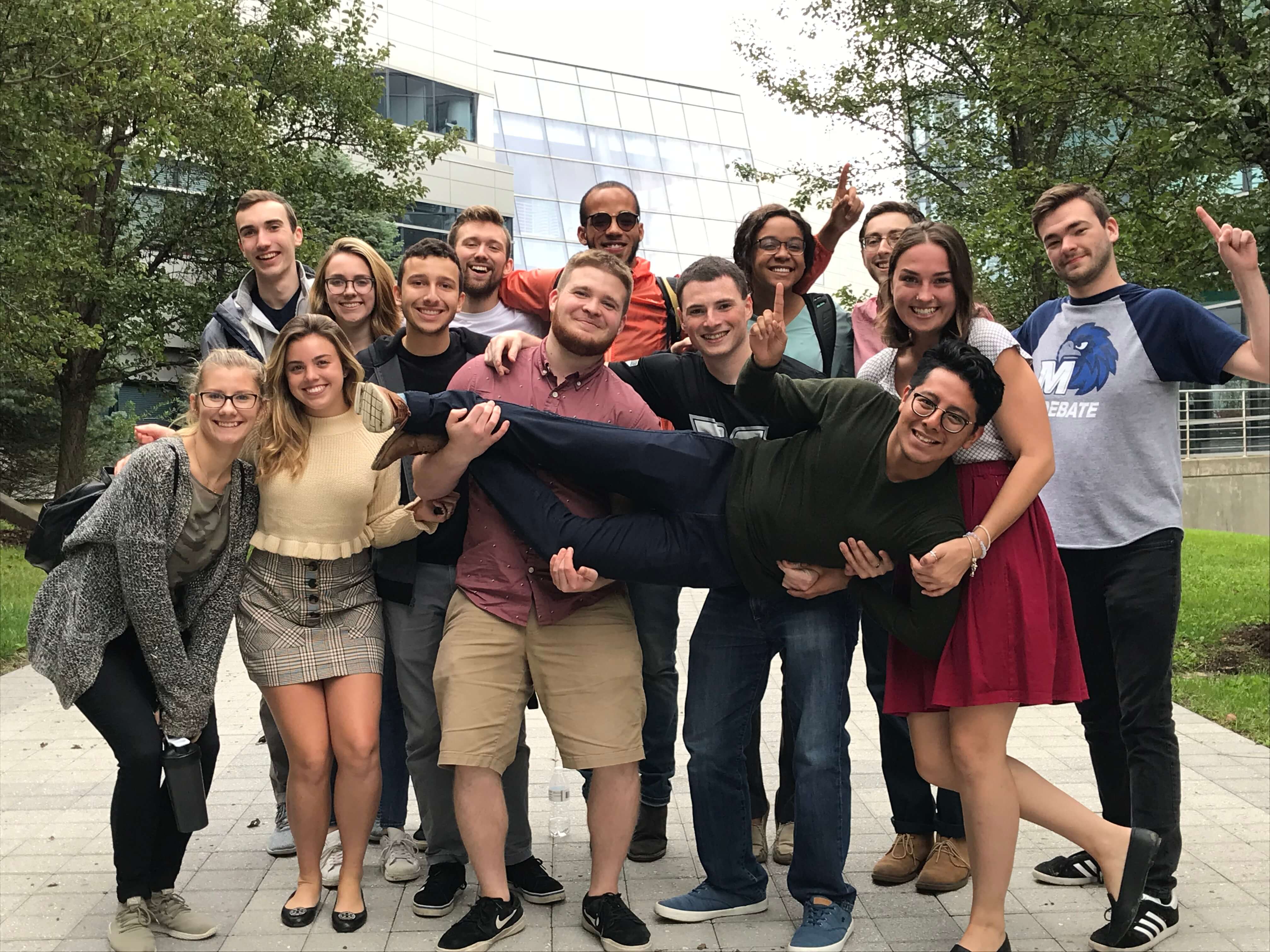 The Monmouth University Debate Team took home four team awards at the Phyllis Schatz Invitational hosted by Binghamton University from Sept. 21 to 23. Approximately 150 debaters participated in teams representing 12 universities, including Cornell University, George Mason University, West Point Military Academy, West Virginia University, Liberty University, University of Rochester, Rutgers University, and New School.
The Monmouth University Debate Team took home four team awards at the Phyllis Schatz Invitational hosted by Binghamton University from Sept. 21 to 23. Approximately 150 debaters participated in teams representing 12 universities, including Cornell University, George Mason University, West Point Military Academy, West Virginia University, Liberty University, University of Rochester, Rutgers University, and New School.
Political science student Eric Schwartz and computer science student Matthew Cohen qualified for the quarterfinal after winning two playoff rounds on Sunday, including a win against Cornell University. The team ultimately lost by a score of 2-1 to George Mason University.
Three additional Monmouth teams, including business student Nicholas Goranites and political science student Mike Manning; political science students Julia Bialy and Maddy Doe; and chemistry student Michael Scognomillo and political science student Michael McGuigan also advanced to playoff rounds before narrowly losing on 2-1 votes against teams from George Mason University and Binghamton University in the novice division.
The teams of political science students Gregory Harpe and Kaitlin Allsopp, as well as Landon Myers and Alexis Vasquez, also scored victories in the experienced division, which includes debaters on university scholarships. The novice team of political science student Mia Jacob and criminal justice student Taylore Chacanias made their debating debut at the tournament and scored a victory against Rochester University.
The topic of this year’s debate was: The United States Federal Government should substantially increase statutory and/or judicial restrictions on the executive power of the President of the United States in one or more of the following areas:
- authority to conduct first-use nuclear strikes;
- congressionally delegated trade power;
- exit from congressional-executive agreements and Article II treaties;
- judicial deference to all or nearly all federal administrative agency interpretations of statutes and/or regulations;
- the bulk incidental collection of all or nearly all foreign intelligence information on United States persons without a warrant.
On the affirmative side of the debate, most Monmouth University teams advocated for a “no first use” nuclear policy, which is a U.S. pledge to only use nuclear weapons in a retaliatory fashion.
The team is scheduled to compete at the West Point Military Academy on the weekend of Oct. 26. For more information, or if you are interested in learning more about the debate team, please contact Professor Joe Patten at 732-263-5742 or jpatten@monmouth.edu.

